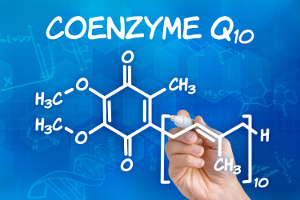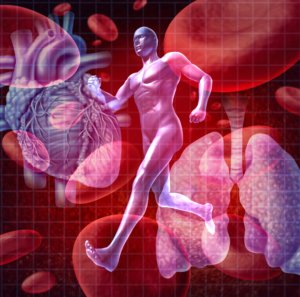afterLoad (456.22KB) (1.59ms)
afterInitialise (1.27MB) (42.62ms)
afterRoute (840.55KB) (16.27ms)
beforeRenderComponent com_tags (20.62KB) (2.47ms)
afterRenderComponent com_tags (1.39MB) (127ms)
afterDispatch (27.44KB) (6.12ms)
beforeRenderRawModule mod_articles_category (READ MORE...) (439.86KB) (14.08ms)
Before Access::preloadComponents (all components) (50.9KB) (1.44ms)
After Access::preloadComponents (all components) (103.05KB) (559μs)
Before Access::getAssetRules (id:8 name:com_content) (840B) (15μs)
After Access::getAssetRules (id:8 name:com_content) (7.05KB) (37μs)
afterRenderRawModule mod_articles_category (READ MORE...) (7.28KB) (174ms)
beforeRenderRawModule mod_custom (BOOST YOUR IMMUNE DEFENSE) (6.45KB) (44μs)
afterRenderRawModule mod_custom (BOOST YOUR IMMUNE DEFENSE) (3.8KB) (193μs)
beforeRenderRawModule mod_tags_popular (Search) (2.36KB) (14μs)
afterRenderRawModule mod_tags_popular (Search) (42.2KB) (223ms)
beforeRenderRawModule mod_custom (Get additionel and more detailed knowledge ) (816B) (20μs)
afterRenderRawModule mod_custom (Get additionel and more detailed knowledge ) (1.55KB) (37μs)
beforeRenderRawModule mod_custom (Overview of vitamins, minerals, and essential fatty acids) (768B) (11μs)
afterRenderRawModule mod_custom (Overview of vitamins, minerals, and essential fatty acids) (960B) (21μs)
beforeRenderRawModule mod_custom (Q10 goes by many names) (608B) (8μs)
afterRenderRawModule mod_custom (Q10 goes by many names) (928B) (16μs)
beforeRenderRawModule mod_custom (Check this before you buy a Q10 product) (752B) (8μs)
afterRenderRawModule mod_custom (Check this before you buy a Q10 product) (944B) (17μs)
beforeRenderRawModule mod_custom (Are you taking supplements) (736B) (7μs)
afterRenderRawModule mod_custom (Are you taking supplements) (1.03KB) (16μs)
beforeRenderRawModule mod_custom (Weight loss that works) (736B) (8μs)
afterRenderRawModule mod_custom (Weight loss that works) (1.03KB) (16μs)
beforeRenderRawModule mod_custom (Antiaging) (720B) (7μs)
afterRenderRawModule mod_custom (Antiaging) (912B) (17μs)
beforeRenderRawModule mod_menu (Are you getting enough vitamins and minerals?) (2.5KB) (10μs)
afterRenderRawModule mod_menu (Are you getting enough vitamins and minerals?) (22.39KB) (3.62ms)
beforeRenderRawModule mod_menu (The key to increased well-being) (736B) (19μs)
afterRenderRawModule mod_menu (The key to increased well-being) (17.83KB) (217μs)
beforeRenderRawModule mod_menu (Did you know.....) (720B) (14μs)
afterRenderRawModule mod_menu (Did you know.....) (25.52KB) (6.29ms)
beforeRenderRawModule mod_custom (Useful Links) (1.06KB) (19μs)
afterRenderRawModule mod_custom (Useful Links) (1.02KB) (31μs)
beforeRenderRawModule mod_custom (Chronic fatigue tied Alan to his bed but Q10 capsules saved him:) (244.28KB) (5.65ms)
afterRenderRawModule mod_custom (Chronic fatigue tied Alan to his bed but Q10 capsules saved him:) (1.06KB) (35μs)
beforeRenderModule mod_custom (Chronic fatigue tied Alan to his bed but Q10 capsules saved him:) (768B) (4μs)
afterRenderModule mod_custom (Chronic fatigue tied Alan to his bed but Q10 capsules saved him:) (1.3KB) (53μs)
beforeRenderRawModule mod_custom (Cholesterol-lowering without side effects:) (368B) (11μs)
afterRenderRawModule mod_custom (Cholesterol-lowering without side effects:) (1.06KB) (20μs)
beforeRenderModule mod_custom (Cholesterol-lowering without side effects:) (752B) (2μs)
afterRenderModule mod_custom (Cholesterol-lowering without side effects:) (1.28KB) (27μs)
beforeRenderModule mod_articles_category (READ MORE...) (20.82KB) (4.5ms)
afterRenderModule mod_articles_category (READ MORE...) (1.25KB) (53μs)
beforeRenderModule mod_custom (BOOST YOUR IMMUNE DEFENSE) (6.81KB) (14μs)
afterRenderModule mod_custom (BOOST YOUR IMMUNE DEFENSE) (1.28KB) (24μs)
beforeRenderModule mod_tags_popular (Search) (1.98KB) (11μs)
afterRenderModule mod_tags_popular (Search) (1.27KB) (21μs)
beforeRenderModule mod_custom (Get additionel and more detailed knowledge ) (1.17KB) (10μs)
afterRenderModule mod_custom (Get additionel and more detailed knowledge ) (1.3KB) (19μs)
beforeRenderModule mod_custom (Overview of vitamins, minerals, and essential fatty acids) (384B) (9μs)
afterRenderModule mod_custom (Overview of vitamins, minerals, and essential fatty acids) (1.31KB) (19μs)
beforeRenderModule mod_custom (Q10 goes by many names) (208B) (8μs)
afterRenderModule mod_custom (Q10 goes by many names) (1.27KB) (19μs)
beforeRenderModule mod_custom (Check this before you buy a Q10 product) (352B) (7μs)
afterRenderModule mod_custom (Check this before you buy a Q10 product) (1.28KB) (19μs)
beforeRenderModule mod_custom (Are you taking supplements) (352B) (8μs)
afterRenderModule mod_custom (Are you taking supplements) (1.28KB) (18μs)
beforeRenderModule mod_custom (Weight loss that works) (336B) (8μs)
afterRenderModule mod_custom (Weight loss that works) (1.27KB) (19μs)
beforeRenderModule mod_custom (Antiaging) (336B) (8μs)
afterRenderModule mod_custom (Antiaging) (3.77KB) (18μs)
beforeRenderModule mod_menu (Are you getting enough vitamins and minerals?) (2.13KB) (10μs)
afterRenderModule mod_menu (Are you getting enough vitamins and minerals?) (1.3KB) (19μs)
beforeRenderModule mod_menu (The key to increased well-being) (352B) (9μs)
afterRenderModule mod_menu (The key to increased well-being) (1.28KB) (18μs)
beforeRenderModule mod_menu (Did you know.....) (336B) (9μs)
afterRenderModule mod_menu (Did you know.....) (1.27KB) (18μs)
beforeRenderModule mod_custom (Useful Links) (1.44KB) (8μs)
afterRenderModule mod_custom (Useful Links) (1.27KB) (18μs)
beforeRenderRawModule mod_menu (Main Menu - English) (25.14KB) (4.53ms)
afterRenderRawModule mod_menu (Main Menu - English) (186.95KB) (3.26ms)
beforeRenderModule mod_menu (Main Menu - English) (720B) (3μs)
afterRenderModule mod_menu (Main Menu - English) (4.86KB) (52μs)
beforeRenderRawModule mod_languages (Sprogskift) (3.94KB) (15μs)
afterRenderRawModule mod_languages (Sprogskift) (28.05KB) (6.4ms)
beforeRenderModule mod_languages (Sprogskift) (720B) (6μs)
afterRenderModule mod_languages (Sprogskift) (5.31KB) (20μs)
beforeRenderRawModule mod_finder () (6.34KB) (9μs)
afterRenderRawModule mod_finder () (128.59KB) (5.2ms)
beforeRenderModule mod_finder () (704B) (4μs)
afterRenderModule mod_finder () (3.29KB) (31μs)
beforeRenderRawModule mod_custom () (6.62KB) (1.64ms)
afterRenderRawModule mod_custom () (23.15KB) (4.32ms)
beforeRenderModule mod_custom () (704B) (6μs)
afterRenderModule mod_custom () (1.23KB) (47μs)
beforeRenderRawModule mod_menu (Main Menu - English) (5.07KB) (96μs)
afterRenderRawModule mod_menu (Main Menu - English) (6.3KB) (2.56ms)
beforeRenderModule mod_menu (Main Menu - English) (720B) (4μs)
afterRenderModule mod_menu (Main Menu - English) (1.25KB) (48μs)
beforeRenderRawModule mod_languages (Sprogskift Mobil) (912B) (18μs)
afterRenderRawModule mod_languages (Sprogskift Mobil) (3.89KB) (621μs)
beforeRenderModule mod_languages (Sprogskift Mobil) (720B) (3μs)
afterRenderModule mod_languages (Sprogskift Mobil) (1.27KB) (30μs)
beforeRenderRawModule mod_finder () (2.3KB) (9μs)
afterRenderRawModule mod_finder () (6.29KB) (5.1ms)
beforeRenderModule mod_finder () (704B) (5μs)
afterRenderModule mod_finder () (1.23KB) (47μs)
beforeRenderRawModule mod_custom () (8.66KB) (239μs)
afterRenderRawModule mod_custom () (904B) (132μs)
beforeRenderModule mod_custom () (704B) (3μs)
afterRenderModule mod_custom () (2.43KB) (24μs)
beforeRenderRawModule mod_custom () (688B) (74μs)
afterRenderRawModule mod_custom () (896B) (1.74ms)
beforeRenderModule mod_custom () (704B) (5μs)
afterRenderModule mod_custom () (2.71KB) (31μs)
afterRender (271.28KB) (24.87ms)
| 1 x afterRenderRawModule mod_tags_popular (Search) (42.2KB) (32.25%) | 223.48ms |
| 1 x afterRenderRawModule mod_articles_category (READ MORE...) (7.28KB) (25.14%) | 174.23ms |
| 1 x afterRenderComponent com_tags (1.39MB) (18.33%) | 127.00ms |
| 1 x afterInitialise (1.27MB) (6.15%) | 42.62ms |
| 1 x afterRender (271.28KB) (3.59%) | 24.87ms |
| 1 x afterRoute (840.55KB) (2.35%) | 16.27ms |
| 1 x beforeRenderRawModule mod_articles_category (READ MORE...) (439.86KB) (2.03%) | 14.08ms |
| 1 x afterRenderRawModule mod_languages (Sprogskift) (28.05KB) (0.92%) | 6.40ms |
| 1 x afterRenderRawModule mod_menu (Did you know.....) (25.52KB) (0.91%) | 6.29ms |
| 1 x afterDispatch (27.44KB) (0.88%) | 6.12ms |
| 1 x beforeRenderRawModule mod_custom (Chronic fatigue tied Alan to his bed but Q10 capsules saved him:) (244.28KB) (0.81%) | 5.65ms |
| 1 x afterRenderRawModule mod_finder () (128.59KB) (0.75%) | 5.20ms |
| 1 x afterRenderRawModule mod_finder () (6.29KB) (0.74%) | 5.10ms |
| 1 x beforeRenderRawModule mod_menu (Main Menu - English) (25.14KB) (0.65%) | 4.53ms |
| 1 x beforeRenderModule mod_articles_category (READ MORE...) (20.82KB) (0.65%) | 4.50ms |
| 1 x afterRenderRawModule mod_custom () (23.15KB) (0.62%) | 4.32ms |
| 1 x afterRenderRawModule mod_menu (Are you getting enough vitamins and minerals?) (22.39KB) (0.52%) | 3.62ms |
| 1 x afterRenderRawModule mod_menu (Main Menu - English) (186.95KB) (0.47%) | 3.26ms |
| 1 x afterRenderRawModule mod_menu (Main Menu - English) (6.3KB) (0.37%) | 2.56ms |
| 1 x beforeRenderComponent com_tags (20.62KB) (0.36%) | 2.47ms |
| 1 x afterRenderRawModule mod_custom () (896B) (0.25%) | 1.74ms |
| 1 x beforeRenderRawModule mod_custom () (6.62KB) (0.24%) | 1.64ms |
| 1 x afterLoad (456.22KB) (0.23%) | 1.59ms |
| 1 x Before Access::preloadComponents (all components) (50.9KB) (0.21%) | 1.44ms |
| 1 x afterRenderRawModule mod_languages (Sprogskift Mobil) (3.89KB) (0.09%) | 621μs |
| 1 x After Access::preloadComponents (all components) (103.05KB) (0.08%) | 559μs |
| 1 x beforeRenderRawModule mod_custom () (8.66KB) (0.03%) | 239μs |
| 1 x afterRenderRawModule mod_menu (The key to increased well-being) (17.83KB) (0.03%) | 217μs |
| 1 x afterRenderRawModule mod_custom (BOOST YOUR IMMUNE DEFENSE) (3.8KB) (0.03%) | 193μs |
| 1 x afterRenderRawModule mod_custom () (904B) (0.02%) | 132μs |
| 1 x beforeRenderRawModule mod_menu (Main Menu - English) (5.07KB) (0.01%) | 96μs |
| 1 x beforeRenderRawModule mod_custom () (688B) (0.01%) | 74μs |
| 1 x afterRenderModule mod_custom (Chronic fatigue tied Alan to his bed but Q10 capsules saved him:) (1.3KB) (0.01%) | 53μs |
| 1 x afterRenderModule mod_articles_category (READ MORE...) (1.25KB) (0.01%) | 53μs |
| 1 x afterRenderModule mod_menu (Main Menu - English) (4.86KB) (0.01%) | 52μs |
| 1 x afterRenderModule mod_menu (Main Menu - English) (1.25KB) (0.01%) | 48μs |
| 1 x afterRenderModule mod_custom () (1.23KB) (0.01%) | 47μs |
| 1 x afterRenderModule mod_finder () (1.23KB) (0.01%) | 47μs |
| 1 x beforeRenderRawModule mod_custom (BOOST YOUR IMMUNE DEFENSE) (6.45KB) (0.01%) | 44μs |
| 1 x After Access::getAssetRules (id:8 name:com_content) (7.05KB) (0.01%) | 37μs |
| 1 x afterRenderRawModule mod_custom (Get additionel and more detailed knowledge ) (1.55KB) (0.01%) | 37μs |
| 1 x afterRenderRawModule mod_custom (Chronic fatigue tied Alan to his bed but Q10 capsules saved him:) (1.06KB) (0.01%) | 35μs |
| 1 x afterRenderRawModule mod_custom (Useful Links) (1.02KB) (0%) | 31μs |
| 1 x afterRenderModule mod_finder () (3.29KB) (0%) | 31μs |
| 1 x afterRenderModule mod_custom () (2.71KB) (0%) | 31μs |
| 1 x afterRenderModule mod_languages (Sprogskift Mobil) (1.27KB) (0%) | 30μs |
| 1 x afterRenderModule mod_custom (Cholesterol-lowering without side effects:) (1.28KB) (0%) | 27μs |
| 1 x afterRenderModule mod_custom (BOOST YOUR IMMUNE DEFENSE) (1.28KB) (0%) | 24μs |
| 1 x afterRenderModule mod_custom () (2.43KB) (0%) | 24μs |
| 1 x afterRenderRawModule mod_custom (Overview of vitamins, minerals, and essential fatty acids) (960B) (0%) | 21μs |
| 1 x afterRenderModule mod_tags_popular (Search) (1.27KB) (0%) | 21μs |
| 1 x beforeRenderRawModule mod_custom (Get additionel and more detailed knowledge ) (816B) (0%) | 20μs |
| 1 x afterRenderRawModule mod_custom (Cholesterol-lowering without side effects:) (1.06KB) (0%) | 20μs |
| 1 x afterRenderModule mod_languages (Sprogskift) (5.31KB) (0%) | 20μs |
| 1 x beforeRenderRawModule mod_menu (The key to increased well-being) (736B) (0%) | 19μs |
| 1 x afterRenderModule mod_custom (Overview of vitamins, minerals, and essential fatty acids) (1.31KB) (0%) | 19μs |
| 1 x afterRenderModule mod_custom (Q10 goes by many names) (1.27KB) (0%) | 19μs |
| 1 x afterRenderModule mod_custom (Weight loss that works) (1.27KB) (0%) | 19μs |
| 1 x beforeRenderRawModule mod_custom (Useful Links) (1.06KB) (0%) | 19μs |
| 1 x afterRenderModule mod_custom (Get additionel and more detailed knowledge ) (1.3KB) (0%) | 19μs |
| 1 x afterRenderModule mod_custom (Check this before you buy a Q10 product) (1.28KB) (0%) | 19μs |
| 1 x afterRenderModule mod_menu (Are you getting enough vitamins and minerals?) (1.3KB) (0%) | 19μs |
| 1 x afterRenderModule mod_custom (Antiaging) (3.77KB) (0%) | 18μs |
| 1 x afterRenderModule mod_menu (Did you know.....) (1.27KB) (0%) | 18μs |
| 1 x afterRenderModule mod_custom (Useful Links) (1.27KB) (0%) | 18μs |
| 1 x afterRenderModule mod_custom (Are you taking supplements) (1.28KB) (0%) | 18μs |
| 1 x afterRenderModule mod_menu (The key to increased well-being) (1.28KB) (0%) | 18μs |
| 1 x beforeRenderRawModule mod_languages (Sprogskift Mobil) (912B) (0%) | 18μs |
| 1 x afterRenderRawModule mod_custom (Check this before you buy a Q10 product) (944B) (0%) | 17μs |
| 1 x afterRenderRawModule mod_custom (Antiaging) (912B) (0%) | 17μs |
| 1 x afterRenderRawModule mod_custom (Q10 goes by many names) (928B) (0%) | 16μs |
| 1 x afterRenderRawModule mod_custom (Are you taking supplements) (1.03KB) (0%) | 16μs |
| 1 x afterRenderRawModule mod_custom (Weight loss that works) (1.03KB) (0%) | 16μs |
| 1 x Before Access::getAssetRules (id:8 name:com_content) (840B) (0%) | 15μs |
| 1 x beforeRenderRawModule mod_languages (Sprogskift) (3.94KB) (0%) | 15μs |
| 1 x beforeRenderRawModule mod_tags_popular (Search) (2.36KB) (0%) | 14μs |
| 1 x beforeRenderRawModule mod_menu (Did you know.....) (720B) (0%) | 14μs |
| 1 x beforeRenderModule mod_custom (BOOST YOUR IMMUNE DEFENSE) (6.81KB) (0%) | 14μs |
| 3 x beforeRenderModule mod_custom () (704B) (0%) | 14μs |
| 1 x beforeRenderRawModule mod_custom (Overview of vitamins, minerals, and essential fatty acids) (768B) (0%) | 11μs |
| 1 x beforeRenderRawModule mod_custom (Cholesterol-lowering without side effects:) (368B) (0%) | 11μs |
| 1 x beforeRenderModule mod_tags_popular (Search) (1.98KB) (0%) | 11μs |
| 1 x beforeRenderRawModule mod_menu (Are you getting enough vitamins and minerals?) (2.5KB) (0%) | 10μs |
| 1 x beforeRenderModule mod_custom (Get additionel and more detailed knowledge ) (1.17KB) (0%) | 10μs |
| 1 x beforeRenderModule mod_menu (Are you getting enough vitamins and minerals?) (2.13KB) (0%) | 10μs |
| 1 x beforeRenderModule mod_custom (Overview of vitamins, minerals, and essential fatty acids) (384B) (0%) | 9μs |
| 1 x beforeRenderModule mod_menu (The key to increased well-being) (352B) (0%) | 9μs |
| 1 x beforeRenderModule mod_menu (Did you know.....) (336B) (0%) | 9μs |
| 1 x beforeRenderRawModule mod_finder () (6.34KB) (0%) | 9μs |
| 2 x beforeRenderModule mod_finder () (704B) (0%) | 9μs |
| 1 x beforeRenderRawModule mod_finder () (2.3KB) (0%) | 9μs |
| 1 x beforeRenderRawModule mod_custom (Q10 goes by many names) (608B) (0%) | 8μs |
| 1 x beforeRenderRawModule mod_custom (Weight loss that works) (736B) (0%) | 8μs |
| 1 x beforeRenderModule mod_custom (Are you taking supplements) (352B) (0%) | 8μs |
| 1 x beforeRenderModule mod_custom (Weight loss that works) (336B) (0%) | 8μs |
| 1 x beforeRenderRawModule mod_custom (Check this before you buy a Q10 product) (752B) (0%) | 8μs |
| 1 x beforeRenderModule mod_custom (Q10 goes by many names) (208B) (0%) | 8μs |
| 1 x beforeRenderModule mod_custom (Antiaging) (336B) (0%) | 8μs |
| 1 x beforeRenderModule mod_custom (Useful Links) (1.44KB) (0%) | 8μs |
| 1 x beforeRenderModule mod_custom (Check this before you buy a Q10 product) (352B) (0%) | 7μs |
| 1 x beforeRenderRawModule mod_custom (Are you taking supplements) (736B) (0%) | 7μs |
| 1 x beforeRenderRawModule mod_custom (Antiaging) (720B) (0%) | 7μs |
| 2 x beforeRenderModule mod_menu (Main Menu - English) (720B) (0%) | 7μs |
| 1 x beforeRenderModule mod_languages (Sprogskift) (720B) (0%) | 6μs |
| 1 x beforeRenderModule mod_custom (Chronic fatigue tied Alan to his bed but Q10 capsules saved him:) (768B) (0%) | 4μs |
| 1 x beforeRenderModule mod_languages (Sprogskift Mobil) (720B) (0%) | 3μs |
| 1 x beforeRenderModule mod_custom (Cholesterol-lowering without side effects:) (752B) (0%) | 2μs |
 According to a study that is published in PLoS Medicine’s Special Issue on Dementia shows that low levels of polyunsaturated fatty acids in the brain may speed up the development of Alzheimer’s disease. It is therefore vital not to shy away from dietary fats. What is important, however, is to consume unspoiled sources of omega-3 and omega-6 fatty acids in the proper balance. Polyunsaturated fatty acids have numerous functions in the brain, on which our nervous system, cardiovascular system, memory, learning ability, and lingual skills depend.
According to a study that is published in PLoS Medicine’s Special Issue on Dementia shows that low levels of polyunsaturated fatty acids in the brain may speed up the development of Alzheimer’s disease. It is therefore vital not to shy away from dietary fats. What is important, however, is to consume unspoiled sources of omega-3 and omega-6 fatty acids in the proper balance. Polyunsaturated fatty acids have numerous functions in the brain, on which our nervous system, cardiovascular system, memory, learning ability, and lingual skills depend.







 A study conducted by the American Heart Association confirms the relation between improved physical condition and feeling younger.
A study conducted by the American Heart Association confirms the relation between improved physical condition and feeling younger. Most people thrive on the idea of staying physically active throughout life, but as we grow older, our skeletal muscle slowly vanishes and our figure changes. This is known as sarcopenia and is one of the main reasons why older people become more fragile and perhaps even disabled. Exercise and diet play a major role, and it seems that the official dietary guidelines are not optimal and should focus more on increased intake of protein as well as lysine, vitamin D, and omega-3 according to a new Canadian study. Earlier research shows that magnesium, selenium, and Q10 are also important for muscle mass and strength.
Most people thrive on the idea of staying physically active throughout life, but as we grow older, our skeletal muscle slowly vanishes and our figure changes. This is known as sarcopenia and is one of the main reasons why older people become more fragile and perhaps even disabled. Exercise and diet play a major role, and it seems that the official dietary guidelines are not optimal and should focus more on increased intake of protein as well as lysine, vitamin D, and omega-3 according to a new Canadian study. Earlier research shows that magnesium, selenium, and Q10 are also important for muscle mass and strength.
 Everyone knows that exercise and sports activities are good for you, but overtraining and high-performance sport may increase your risk of oxidative stress, which is associated with acute injuries, inflammation and later risk of neurodegenerative disease such as Alzheimer’s disease and ALS (amyotrophic lateral sclerosis). It is therefore a good idea to take antioxidant supplements, as this may help prevent both acute and chronic injuries. A comprehensive article published in the science journal Nutrients looks closer at the relation between free radicals and antioxidants, which have different functions in connection with various types of physical activity. This is especially the case with vitamins A, C, and E plus selenium and zinc. It is also important to make sure to get enough vitamin D and omega-3 fatty acids for counteracting inflammation and oxidative stress.
Everyone knows that exercise and sports activities are good for you, but overtraining and high-performance sport may increase your risk of oxidative stress, which is associated with acute injuries, inflammation and later risk of neurodegenerative disease such as Alzheimer’s disease and ALS (amyotrophic lateral sclerosis). It is therefore a good idea to take antioxidant supplements, as this may help prevent both acute and chronic injuries. A comprehensive article published in the science journal Nutrients looks closer at the relation between free radicals and antioxidants, which have different functions in connection with various types of physical activity. This is especially the case with vitamins A, C, and E plus selenium and zinc. It is also important to make sure to get enough vitamin D and omega-3 fatty acids for counteracting inflammation and oxidative stress. It is commonly known that
It is commonly known that  "After about one week of taking the Q10 supplement I could feel a huge difference," says 23-year old Alan Piccini, who has been suffering from extreme fatigue and muscle aches ever since he was a child.
"After about one week of taking the Q10 supplement I could feel a huge difference," says 23-year old Alan Piccini, who has been suffering from extreme fatigue and muscle aches ever since he was a child. “Taking capsules with co-enzyme Q10 has freed me of the severe side effects of my cholesterol lowering medicine,” Mrs Franken explains.
“Taking capsules with co-enzyme Q10 has freed me of the severe side effects of my cholesterol lowering medicine,” Mrs Franken explains.